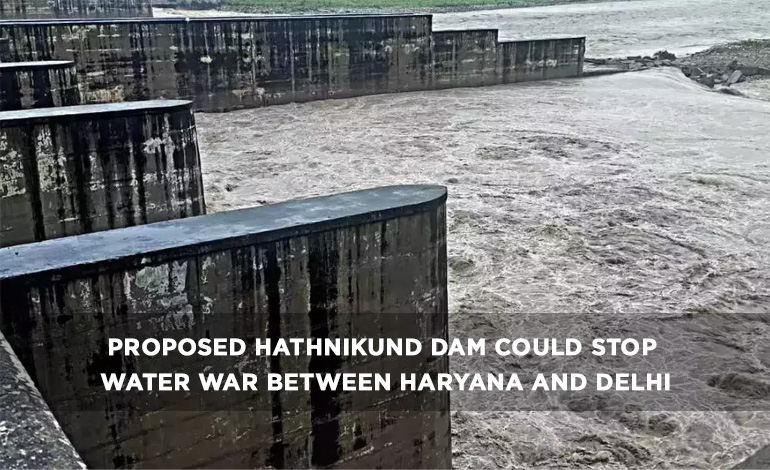A proposed dam on the Yamuna River in Haryana could help to resolve the long-standing water dispute between the state and Delhi.

A proposed dam on the Yamuna River in Haryana could help to resolve the long-standing water dispute between the state and Delhi. The Hathnikund dam would have a capacity of 1,000 million cubic meters (mcm), which is enough to meet Delhi's water needs for up to 20 years.
Haryana and Delhi have been locked in a dispute over water sharing from the Yamuna River for decades. Haryana says that it is entitled to more water than Delhi, while Delhi says that it needs more water to meet the needs of its growing population. The dispute has led to several court cases and has also caused tensions between the two states.
The Hathnikund dam could provide a solution to this dispute. It would give Haryana a guaranteed amount of water, and it would also provide Delhi with a reliable source of water. This would help to de-escalate tensions between the two states and it would also ensure that both states have enough water to meet their needs.
The construction of the Hathnikund dam is not without its challenges. The dam would require the displacement of thousands of people, and it would also have an impact on the environment. There is also the possibility that the dam could be a target for terrorist attacks.
Despite these challenges, the Hathnikund dam is a viable solution to the water dispute between Haryana and Delhi. It would provide both states with a reliable source of water, and it would help to de-escalate tensions between them. The dam is currently under construction, and it is expected to be completed by 2025.
In addition to the Hathnikund dam, there are a number of other measures that could be taken to resolve the water dispute between Haryana and Delhi. These measures include:
1) Improving water conservation and efficiency in both states.
2) Developing new water sources, such as groundwater and rainwater harvesting.
3) Building inter-basin water transfer projects.
4) Promoting cooperation between the two states on water management issues.
By taking these measures, Haryana and Delhi can work together to ensure that both states have enough water to meet their needs. This would help to prevent future water wars and it would also benefit the environment.